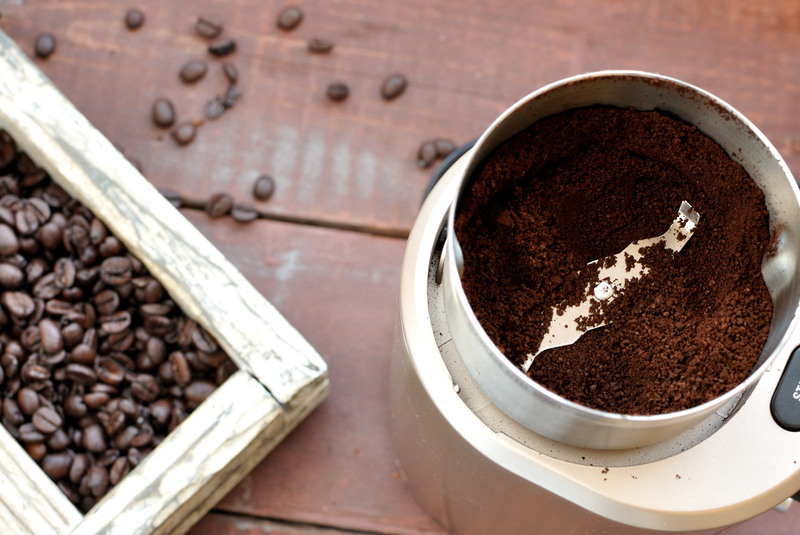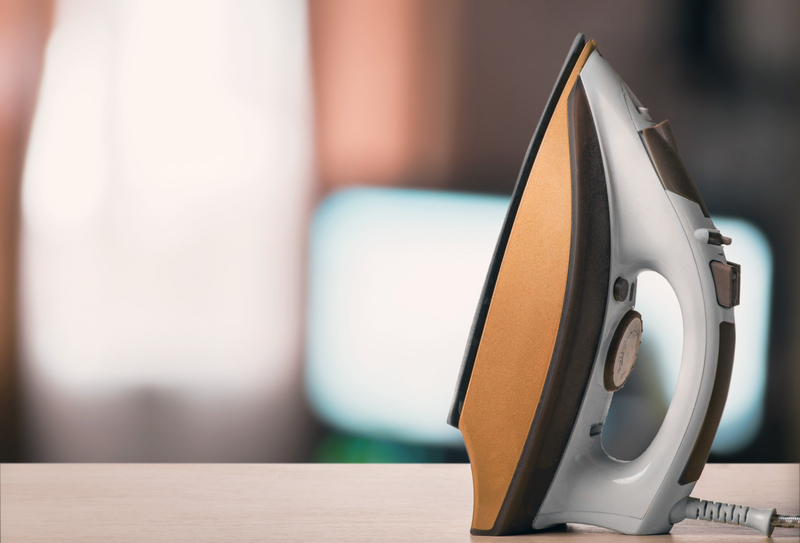Say Goodbye to Unpleasant Pet Scents in Your Home
Posted on 09/06/2025
Say Goodbye to Unpleasant Pet Scents in Your Home: The Ultimate Guide
Are "unpleasant pet scents" making your home less welcoming? If you're a pet owner, you already know how rewarding furry friends can be--but their lingering odors aren't quite as charming. Thankfully, you can enjoy a fresh-smelling home without having to part ways with your pets. Here's your comprehensive guide to keeping your home odor-free, even with feline and canine companions. Learn practical tips, best cleaning routines, and the secrets to neutralizing pet odors effectively and naturally.
Why Do Pet Odors Linger in Your Home?
Before tackling the problem, it's important to understand the root cause of stubborn pet scents. Common causes include:
- Pet dander--tiny skin flakes that linger on surfaces and in the air
- Saliva--left behind from licking, grooming, or chewing toys
- Accidents--urine, feces, or vomit can seep into floors or carpets
- Oils--produced by your pet's skin and fur
- Litter boxes and cages--if not cleaned regularly, they quickly become pungent sources of odor
Even well-groomed pets and regularly cleaned homes can fall victim to these causes. The key is prevention, quick response, and deep cleaning. Ready to say goodbye to unpleasant pet smells? Let's dive in.

Daily Habits to Prevent Pet Odors
1. Groom Your Pets Regularly
Frequent grooming isn't just about keeping your pets healthy--it's also your first line of defense against pet-related smells. Brush your pets daily to reduce dander, fur, and loose hair that can harbor odors. Bathing your pets every few weeks with a gentle, pet-safe shampoo can dramatically reduce doggy or cat odors. Don't forget to wash their collars and harnesses, too!
2. Keep Pet Bedding Clean
Odors love to cling to soft surfaces. Wash your pet's bedding, blankets, and plush toys at least once a week--more often if your pet is prone to accidents or sheds heavily. Use hot water and a pet-safe detergent for best results, and consider purchasing odor-neutralizing laundry additives.
3. Vacuum Frequently
Your carpets, rugs, and upholstery act like odor sponges, trapping fur, dander, and pet oils. Invest in a high-quality vacuum cleaner with a HEPA filter and vacuum all pet areas at least twice weekly. Don't forget hard-to-reach places--under furniture, stairs, or behind the couch.
4. Maintain Clean Litter Boxes and Cages
A dirty litter box is a guaranteed source of stubborn pet odors. Scoop daily, deep clean weekly with mild soap, and replace litter at least as recommended. For bird cages, hamster habitats, and reptile enclosures, follow the same approach: spot clean daily and deep clean on schedule.
5. Air Out Your Home
Nothing beats fresh air for banishing stubborn odors. Open windows and doors for at least 15 minutes daily to allow pet odors and indoor air pollutants to escape, and clean, outdoor air to flow in. Use fans or an air purifier with a HEPA and carbon filter for continuous protection.
Deep Cleaning: The Secret to Saying Goodbye to Persistent Pet Odors
1. Tackle the Floors
- Hard floors: Mop with a mixture of warm water, white vinegar, and a splash of mild dish soap. Avoid ammonia-based cleaners, as they can excite your pet's natural urge to mark territory.
- Carpets and rugs: Sprinkle baking soda liberally, let it sit for at least 30 minutes, and vacuum thoroughly. For stubborn odors, rent or purchase a carpet cleaner designed for pet households.
- Pet accidents: Blot moisture immediately, rinse with water, and treat with an enzymatic cleaner to break down odor-causing molecules (especially important for cat urine!).
2. Refresh Upholstery & Curtains
Your furniture, drapes, and even decorative pillows can trap unpleasant pet scents. Remove covers if possible and launder them according to the manufacturer's instructions. For fabrics that can't be washed, vacuum, spray with a fabric refresher, and air out outdoors. Some professional odor removal sprays are formulated specifically for textiles and pet smells.
3. Wash Pet Toys and Accessories
Chew toys, leashes, and bowls attract pet slobber and bacteria. Dishwasher-safe toys can go in a gentle dishwasher cycle. Soft items can be cleaned in your washing machine inside a mesh bag.
4. Clean Air Ducts and Vents
Pet hair and dander often accumulate in your home's vents, spreading odors every time you run the heat or AC. Consider a professional air duct cleaning every few years, or clean removable vent covers in soapy water. Change HVAC filters regularly to keep the air fresh.
Natural Solutions for Neutralizing Pet Odors
Sometimes, the best remedies are found in your kitchen. Try these eco-friendly, safe options:
- Baking soda: Safe for carpets, upholstery, and even in litter boxes to absorb bad smells
- White vinegar: Helps neutralize stubborn pet stains (like urine) and leaves no residue
- Lemon juice: Freshens the air and neutralizes odors on hard surfaces
- Activated charcoal: Place bags in rooms to absorb persistent odors
- Houseplants: Spider plants, peace lilies, and English ivy can help freshen the air naturally
A Word of Caution:
Always double-check that substances you use are non-toxic to your pets. Essential oils and certain cleaning products can be dangerous--when in doubt, consult your veterinarian.
Modern Tools and Products for Odor Elimination
The market for pet odor removers is booming, with products designed for every situation. Here's a breakdown of popular choices:
- Enzymatic cleaners: These products use natural enzymes to break down the organic molecules that cause unpleasant odors--excellent for urine or vomit stains.
- Pet-safe air purifiers: Choose models with HEPA and activated carbon filters for maximum effect. They'll reduce dander, hair, and lingering smells from the air.
- Odor-absorbing gels or pellets: These slowly release fresh scents while trapping bad ones (just place them out of reach of curious noses and paws!).
- UV black lights: These handy devices expose hidden pet stains at night or in dark rooms, allowing you to target and eliminate every source of odor.
How to Train Your Pets to Reduce Indoor Odors
1. Encourage Proper Bathroom Habits
Invest time in house training puppies and kittens using positive reinforcement methods. Take dogs for regular walks and ensure cats have clean, accessible litter boxes. Consistent training greatly reduces the risk of indoor accidents and lingering bad smells.
2. Create Designated Pet Zones
Set up specific areas in your home for feeding, sleeping, and playing. Using washable mats and barriers in these zones makes cleaning and odor control much easier.
3. Discourage Marking Behaviors
Neutering or spaying your pets can minimize territory-marking, which is a leading cause of persistent pet scents indoors--especially for cats and some dogs.
Top 10 Hacks to Say Goodbye to Unpleasant Pet Scents
- Use washable pet beds and rotate several between washes
- Wipe your pet's paws after outdoor walks to reduce tracked-in dirt and bacteria
- Install doormats at every entrance
- Paint high-traffic pet areas with washable paint for easy cleaning
- Change food and water bowls daily
- Use deodorizers or air purifiers with HEPA filters
- Keep your HVAC system maintained
- Soak toys in vinegar solution before a deep wash
- Try a homemade citrus or herbal spray to freshen the air
- Regularly clean your pet's ears and teeth to prevent mouth and body odors
What to Do When Nothing Works? Professional Help!
If after trying every tip, you still can't fully remove unpleasant pet odors from your home, it may be time for professional intervention. Specialty cleaning services use industrial enzyme treatments and steam-cleaning equipment to treat carpets, flooring, and upholstery. For chronic or health-related pet odor issues, consult your vet for possible underlying medical causes.

Frequently Asked Questions (FAQs)
- How do I get rid of dog urine smell permanently?
- Blot up as much as possible, then treat with an enzymatic cleaner specifically designed for pet odors. Repeat as needed until smell is completely gone.
- Is it safe to use baking soda with pets in the home?
- Generally, yes! Keep pets away while treating surfaces, and vacuum thoroughly afterward.
- What is the best air purifier for pet odors?
- Look for models with both a HEPA filter and an activated carbon filter for double protection against dander and airborne smells.
- Can essential oils eliminate bad pet odors?
- Caution: Many essential oils are toxic to pets, especially cats. Stick with pet-safe products or consult your vet first.
- How often should I clean my pet's bedding?
- At least once a week, or more often if your pet tends to get dirty or shed heavily.
Conclusion: Enjoy a Fresh Home, Even with Pets
Pet lovers don't have to choose between a fresh-smelling home and unconditional furry affection. Implementing smart cleaning habits, creating pet-friendly routines, and using modern odor-fighting solutions can help you say goodbye to unpleasant pet scents for good. With a proactive approach, you--and your guests--can always enjoy the comfort of an inviting, odor-free environment.
So, embrace your pets and take these expert-approved steps to ensure a clean, aromatic, and happy home. Fresh living is just a few changes away!




